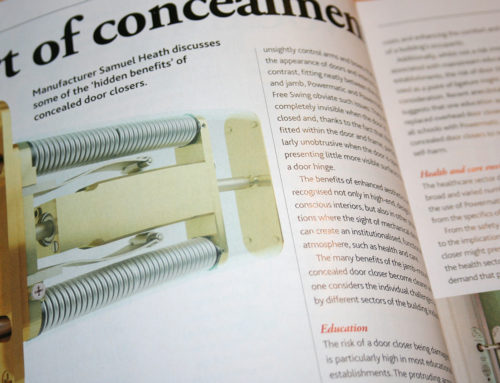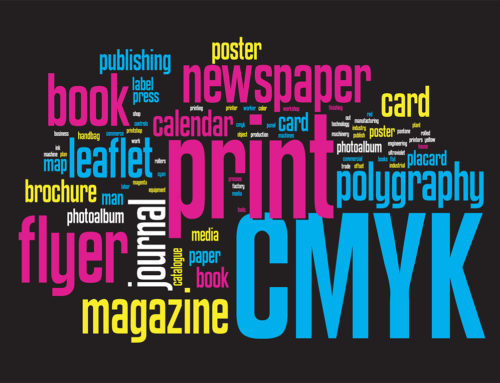Is writing one of those ‘you either have it or you don’t’ talents?
At its simplest levels, the answer is probably no. Most people can master the rudimentary skills of putting a few words together to make a sentence, and even a few sentences together to make a paragraph. You don’t even need to be able to hold and steer a pen across a page (how I ever won a handwriting prize at school I’ll never know!), you simply have to tap away on a keyboard. The computer will even correct or suggest spelling and grammatical mistakes.
But when it comes to stringing paragraphs together to form a coherent article, or pages together to create a comprehensive sales or technical brochure, the answer is somewhat different – some people have it and some people, even the most intelligent, don’t!
Good writing, writing that informs, excites, captivates and educates the reader is a special talent. If it was easy, we would all be Grishams and Rowlings!
In the business to business world, technical writing demands a different set of skills to those employed by authors of fiction. Whether creating headlines for advertising, copy for websites, sales or technical literature, scripts for videos or articles for trade publications, the writing has to grab the reader’s attention and make the necessary points in a clear, concise fashion to convey an organisation’s messages effectively and efficiently.
Copywriters put the reader first
Vital to all forms of communication is an empathy with the reader. Knowing what needs to be said is fine, but if this is not conveyed in a manner that is appropriate to the target audience, the reader will very soon switch off and the message will not get delivered. It may not even get past the editor!
It is surprising how many organisations believe that because they have something to say, people will listen. They won’t, unless it is phrased and presented in a way that is appropriate to them.
Understand, translate and write
The technical writer’s skill is in gaining an understanding of the subject matter then translating this into copy that meets the needs of the intended readers to the organisation’s best advantage. The principle applies in all areas of technical, and for that matter commercial, copywriting.
The technical copywriter does not necessarily need to have specialist knowledge of the subject or markets in order to do this, although it can help. What is required is an ability to assimilate data and information, ask the right questions to extract features and benefits that apply to the target audiences and write copy that meets the needs of the organisation, the reader and the media that will be used to transport it.
So, for example, writing an article on how nanotechnology will transform the lives of the painter and decorator needs to focus less on the science that underpins nanotechnology and more on what it does to the paint in making it easier to apply, quicker to dry and easier to clean from brushes. The benefits of time and cost economies immediately become clear and the message resonates with its target audience.
Mind your language
The language used is vital. We’re not talking about native tongue, or the avoidance of obscenities and colloquialisms; this should be a given. What we mean is the use of terminology and vocabulary that is appropriate to the target audience.
Different professions and trades will see things differently, be looking for different features and benefits, and, generally, have different intellectual backgrounds. The language used in the writing should take account of these factors and be tailored accordingly.
Media magic
Modern communications have seen a proliferation in the number and variety of media available for the dissemination of an organisation’s message.
A target audience can potentially be reached by any one, or a combination of, print, video, audio and electronic media, most of which are easily accessible to broadcasters and receivers alike.
It goes without saying that the internet has transformed the way in which an organisation can communicate, even interact, with its target audiences.
The enormous variety of communications channels available demand a versatile and flexible approach to copywriting.
Blogs can be as long or as short as the subject and target audiences dictate (although breaking the subject up into small chunks can help), video scripts need to be punchy, Tweets and Facebook posts need to be catchy and succinct, whilst articles for printed media need to meet the needs of the publications in terms of style and length. Sales brochures need to promote key benefits quickly, whilst technical literature needs to inform, educate and enthuse.
Again, the technical copywriter’s skill is in assimilating the information and translating it into one, or several, pieces of copy that suit the demands of the media for which they are intended.
Not everyone can write copy that is easy and interesting to read, but using a technical copywriter can take the pain out of the process and will ensure that the message is properly presented and received by its readers, viewers and listeners. Often we find that a half-hour chat with technical staff or key executives is enough to extract the details necessary for creating marketing copy.
Ultimately, this means more effective marketing communications and more efficient use of an organisation’s valuable resources.








